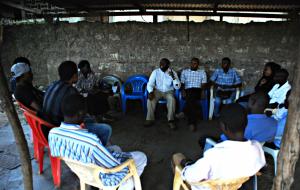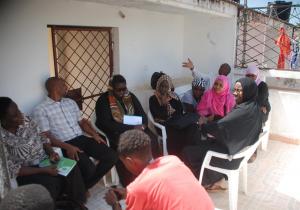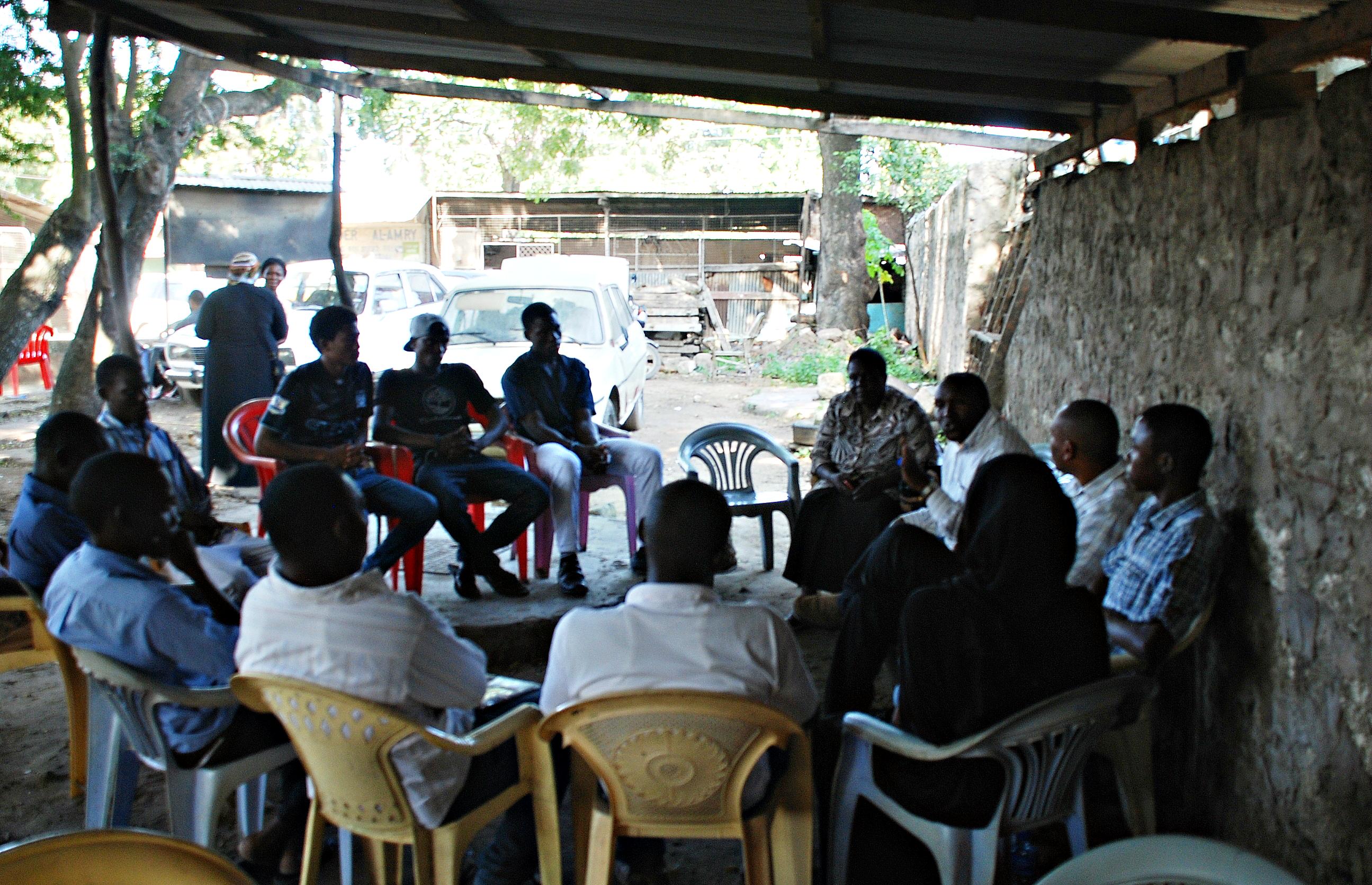Addressing the root causes of radicalization in Mombasa
‘We asked the children what they understand by the words radicalization, extremism and terrorism. They were not sure,’ Mariam Wambui told us. She was speaking at a meeting of the MIKA initiative – a partnership between the Muslim-inspired Minda Trust and the Christian-inspired Eleka Trust, based in Kenya’s second city, Mombasa.
The meeting took place on 16 June in the high-density suburb of Mtwapa, infamous for prostitution and drug-dealing. Night-clubs in Mtwapa have been bombed by Islamists on the grounds that they are the face of Western decadence. With many countries advising their citizens to stay away, Mombasa’s normally vibrant tourist scene is hushed.
One day before our meeting in Mtwapa, 60 people were killed in the coastal town of Mpeketoni. Al-Shabaab claimed responsibility, while the Kenyan Government blamed the attack on local rivalries.
The inter-faith MIKA initiative was born in Nairobi in 2012, at a training of religious peace-builders facilitated by Nigerian peace-makers Imam Muhammad Ashafa and Pastor James Wuye. MIKA is a joint action by the Minda and Eleka Trusts. The acronym stands for ‘Mothers in Kenya Amani’. (Amani means peace in Kiswahili).
‘Some of the children made a scene’, Mariam went on. ‘They called us kaffirs [unbelievers], because we work with Christians and they refused to drink the sodas we offered them.’
‘We are in a new era of radicalization’, said Reverend Jane Jilani, founder and director of Eleka. ‘It was not like this before. Moderate Muslim leaders tell me that they live in fear and are keeping quiet. The age of recruitment by the radicals has gone down; today even schoolchildren aged 12-15 years are being radicalized.’
 Zuhura Juma, a youth activist with Minda Trust, went on to explain how young children are being supplied with ayas [verses from the Koran] out of context.
Zuhura Juma, a youth activist with Minda Trust, went on to explain how young children are being supplied with ayas [verses from the Koran] out of context.‘We have to explain to them the real meaning of jihad. We talk about ‘jihad al nafs’ – the inner jihad; making oneself a better person, rather than fighting everyone who does not think like you.’
A woman of Somali origin, who had attended the MIKA-hosted workshop by Imam Ashafa and Pastor James in Mombasa in 2013, spoke of the change she had experienced:
‘My family used to associate only with other Somalis. But after the workshop with the imam and the pastor, I went to my father and said we should associate with other people. That happened and our community has become more open to others.’
From Mtwapa, we went on to visit another volatile suburb, Bamburi, to meet with Muslim and Christian youth. It was in Bamburi that the madrassa teacher Ustad Ibrahim was assassinated.
The conversation with the youth turned to the root causes of radicalization. ‘Al-Shabaab, historical injustice, poverty, idleness, lack of education’ were cited.
Joseph Karanja, from Initiatives of Change Kenya, shared his own experience:
‘I grew up in a slum – Kamakunji in Eldoret. There was one tap for 15,000 people. The authorities used to blame so many ills – drugs, crime - as coming from Kamakunji.
You often hear people in Kenya saying that violence is caused by poverty. I say from my own experience that poverty is not a reason to kill someone.
 I went to the local government school. I realized that education is the way out. I got straight ‘As’ and studied law in India. When I came back, I decided to do voluntary work with Initiatives of Change. You also need a vision, a dream. I wanted to see clean elections in this country.
I went to the local government school. I realized that education is the way out. I got straight ‘As’ and studied law in India. When I came back, I decided to do voluntary work with Initiatives of Change. You also need a vision, a dream. I wanted to see clean elections in this country.Always remember that the Almighty has a plan for your life. People can challenge an ideology but they cannot challenge your own experience. Go out and share your experience to create a better society.’
The ensuing conversation with the youth revealed a deep hunger for training and understanding. Several responded to Joseph Karanja’s encouragement not to have ‘empty dreams’
The following day the MIKA and IofC teams met to plan how to respond to the needs that had emerged. A next step was agreed - to hold a ‘camp’, a residential retreat outside the city, for selected Muslim and Christian youth, where life skills, tools for social change, mediation and conflict resolution could be examined in an inter-faith context. Tools like the films The Imam and the Pastor and Freedom were proposed for study.
The purpose of the proposed camp is to forge a Mombasa-wide youth network of bolozi na amani – ‘peace ambassadors’. The youth’s suggestions of outreach through social media, street theatre, as well as short films, would be built in to the project.
There was a sense of unanimity that the youth should contribute from their own pockets towards the camp and that MIKA and IofC should now collaborate, as a matter of urgency, in formulating a joint project proposal and seeking funds in a long-term commitment.
The MIKA/IofC meetings in Mtwapa and Bamburi were part of project ‘to transfer the methodologies depicted in the film An African Answer across Kenya’. It is supported by the United States Institute of Peace and facilitated by IofC Kenya and For the Love of Tomorrow Films, UK.
Report and photos by Alan Channer

